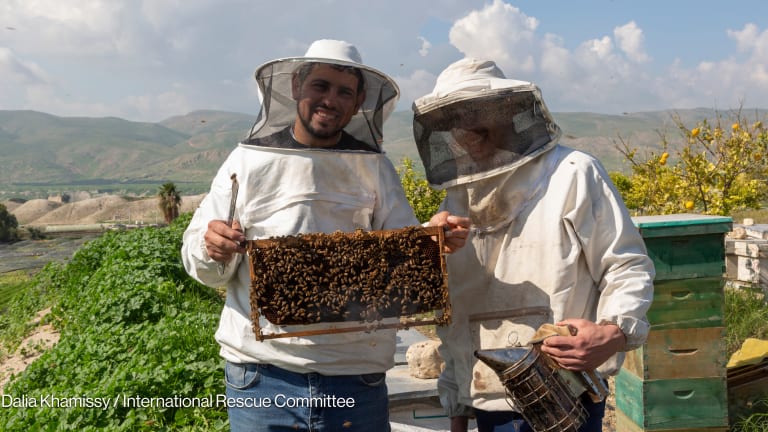
Senior officials from the governments of Iraq, Jordan, Lebanon and Turkey will gather at the Dead Sea in Jordan next week for the first Resilience Development Forum. Hosted by the Jordanian government and organized by the United Nations Development Program, the forum will bring together governments and representatives from donors, aid organizations, civil society and the private sector.
The goal is ambitious and vital. It is to develop a shared vision for tackling the lengthening crisis of suffering, displacement and development reversal caused by the conflict in Syria.
The conflict is now in its fifth year, with no end in sight. It has become entwined with conflict in Iraq, and it is threatening the stability and security of Jordan, Lebanon and Turkey. The human impact has been catastrophic. Some 12 million Syrians have fled their homes. Of these, nearly 8 million are living displaced within Syria, and more than 4 million are living in Iraq, Jordan, Lebanon and Turkey. Faced with the struggle of rebuilding their lives, growing numbers have made the decision to travel on to other countries, hundreds of thousands making perilous journeys across the Mediterranean to Europe.
Response
The task of providing aid in response to this crisis has been immense and complex. The countries of the region have carried the largest burden, with communities, local authorities and local and international aid organizations trying to find ways to increase access to the essentials of life — housing, water, food, health care, education, livelihoods and protection. Governments have developed national response plans, spending money from national budgets on helping refugees and host communities.
Together, the collective aid response has achieved much. Through the Regional Refugee and Resilience Plan for 2015-16, and the Syria Response Plan for 2015, international aid organizations and their local partners have started to bridge between responding to short-term humanitarian needs and longer-term development needs. These plans have helped to coordinate international aid with the national response plans of governments in the region. And they have helped to mobilize international aid from across the world — so far this year, $2.2 billion and $1 billion respectively.
But these figures, combined, are only 45 percent of the $7.4 billion total that aid organizations and national partners appealed for. And a consequence of the shortfall in funding is that gaps in assistance for refugees and host communities have grown. Food aid rations have had to be cut. More children have been unable to go to school. More men and women have been unable to find decent shelter and livelihoods. And more men, women and children have been driven to try to migrate to Europe and elsewhere.
Vision
More needs to be done to help the millions in need, to help the countries that are in the front line of bearing the impact of the Syrian conflict, and to do this in a better and more effective way. All the signs are that the destruction and mass displacement the conflict has been wreaking will last for years to come. And from Afghanistan to Somalia, from Sudan to Vietnam, history offers no shortage of examples from which to know that large and complex conflicts, their ending and the building of real peace can take decades.
In the collective aid response for Syria and its neighbors what is needed therefore is to build on the achievements so far and to produce a more concerted and effective response for the long term. Governments in the region, civil society, and humanitarian and development aid partners, need to bring together their efforts to build the resilience of the region and its people, to build their capacity to cope with and recover from further pressures, and to enable them to fulfil their potential and goals for sustainable development.
It is because of this that UNDP and the government of Jordan are convening the Resilience Development Forum on Nov. 8 and 9. The event will aim to produce a shared vision for responding to the impact of the Syrian conflict — a vision that addresses the fundamental change we need to be more effective in the response to a protracted crisis. In short, it will aim to set an agenda for building resilience in the region.
To prepare for the forum, UNDP has conducted country-by-country consultations, in Egypt, Iraq, Jordan, Lebanon, Syria and Turkey. The forum will review the findings of those consultations and it will explore examples of innovative approaches to building resilience. Discussions will investigate how the organisation of aid can be improved, how those displaced by conflict can be better included in society, how the capacities of the private sector can be better used, and how Syria itself can become more resilient.
After the forum the test will be to turn the vision and agenda into action and results.
How can this vision be transformed into action? Join the conversation by leaving a comment below.
Join the Devex community and access more in-depth analysis, breaking news and business advice — and a host of other services — on international development, humanitarian aid and global health.








